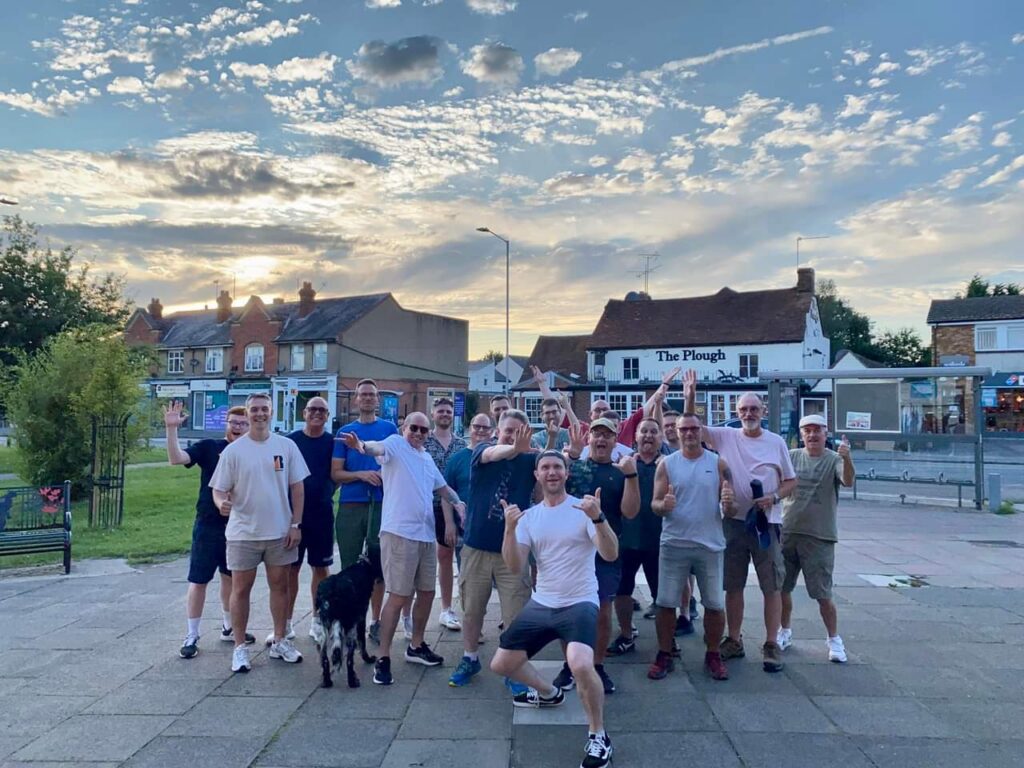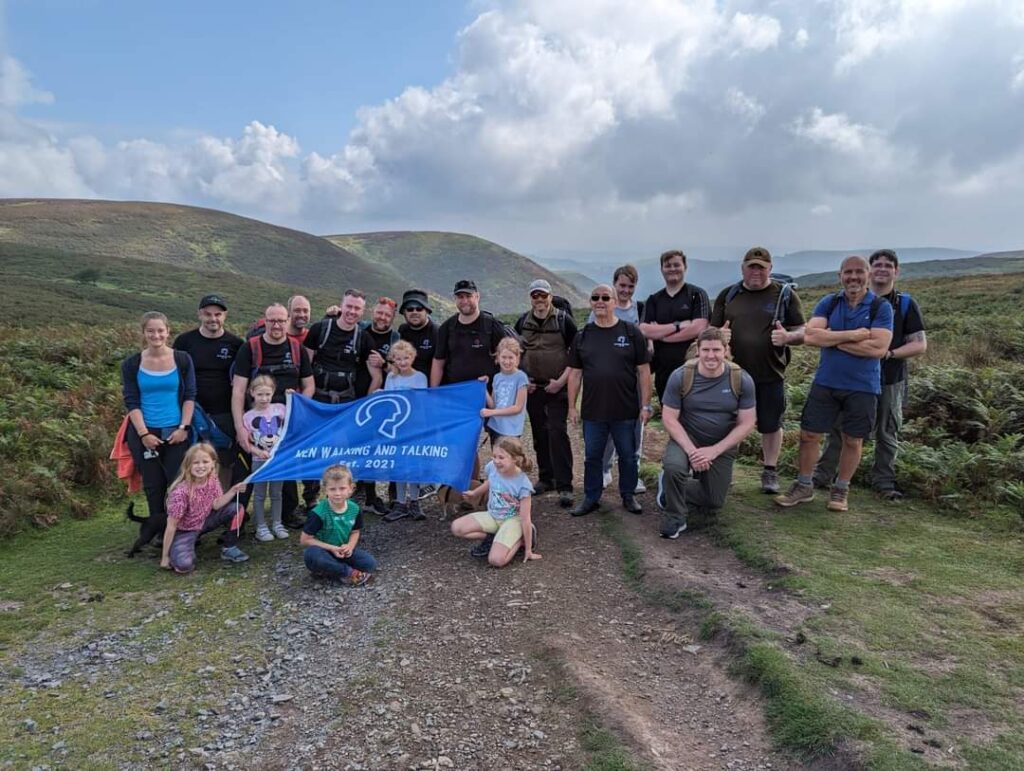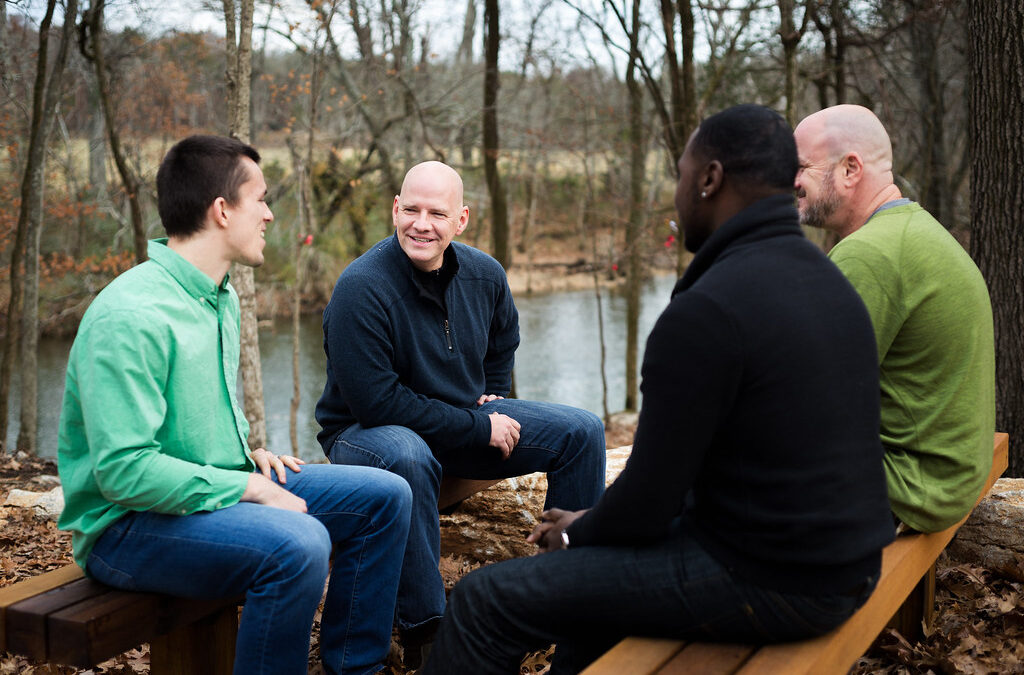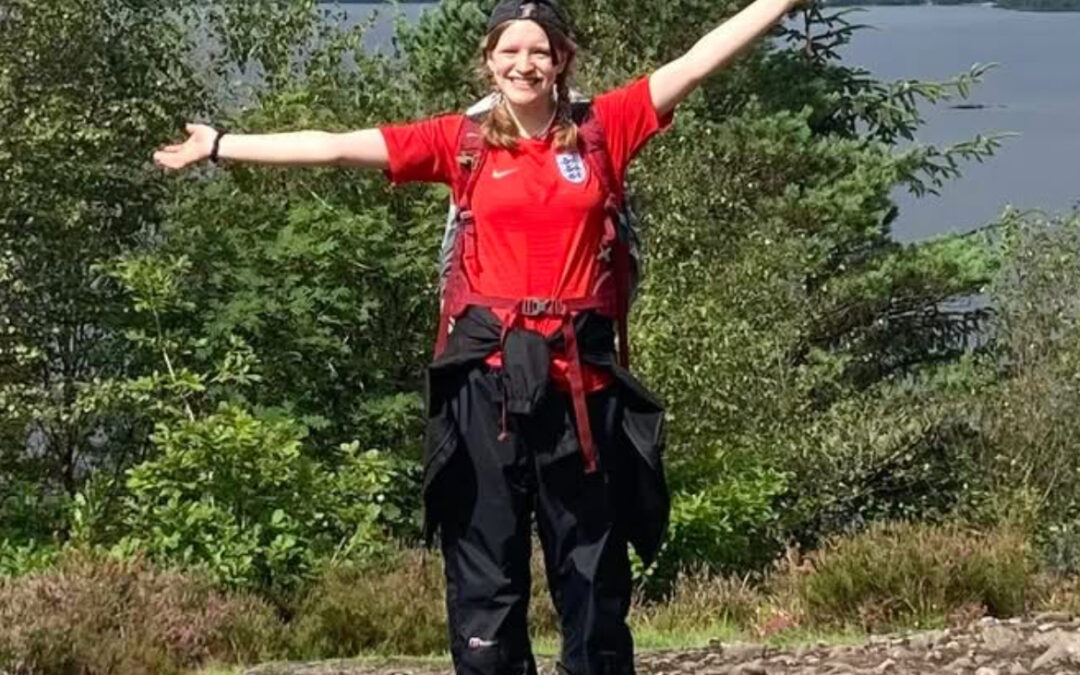Quickly nipping to the shops or even walking to the bottom of the garden to hang the washing out may seem as easy as breathing to most people; but for some, these are insurmountable obstacles that leave people trapped in their house. But the tireless effort of volunteers is ensuring that they are overcoming the biggest hurdle, stepping through the door.
For people who have found themselves restricted to their homes due to physical or mental limitations, walking groups like Men Walking and Talking, and Move the Masses are transforming their lives. Volunteers who take time out of their day to help are the unsung heroes, their small acts having a huge impact.
Move the Masses
“The idea behind the charity is to support anyone who has a barrier in the way of getting out the house,” Move the Masses CEO Libby Croft tells Optimist. The charity was set up in 2018 by founder Egg Cameron. She started by volunteering at GoodGym, a charity that combines exercise with helping people in the community. But she noticed that during social visits to people who didn’t leave the house, that they wanted to be out and about, and that’s when Move the Masses was created.
The charity matches people with a volunteer who meet once a week and goes for a walk. They are met at the front door to overcome the first hurdle, which is leaving the house, and each walk is carefully catered to each individual’s abilities and goals.
“It’s a really simple concept that has a massive impact on people,” Libby says.
“I’m a keen believer of the benefits of engaging in physical exercise and connecting with nature on people’s mental health. This charity perfectly intertwines the two.
“Some might be a walk into town to go to the shops, or accessing green spaces, whilst for others it may simply be a stroll to the end of the drive or around their garden,” Libby says.
“It’s a real mix of people that we help. Some are able-bodied but their mental health struggles are what hold them back. Others are looking to improve their strength and confidence after health problems.”
Move the Masses began in York, but has expanded to cities like Leeds and Durham, with 250 people being supported. Social prescribers or NHS providers are the main way people are referred to the service, but family members or even the individual themselves can contact the charity. Whilst many of their referrals are people with physical limitations needing support, most find that the biggest change is in their mental health and attitude to life.
For more on people working to improve their mental health, read here.
“A case that stuck with me was a young man who had suffered from a stroke. It was life-changing for him. He travelled a lot for work and really struggled going from having the whole word at his fingertips, to leaving his job and his world condensing down to the confines of his flat,” Libby says.
“He had completely lost his confidence and his freedom.
“But by walking he began to gradually gain back his confidence. He started to do the things he had previously enjoyed, like watching the football with his volunteer.
“Spurred on by the people he has met on these walks, he’s started to get involved in similar groups and has really connected with the community.
“His world is expanding again, he’s established a new acceptance for his life and has refound his confidence and happiness. He’s even come off his antidepressants as a result!” Libby tells us.
Others are physically healthy, but may have conditions that prevent them from leaving, such as people with early onset dementia who can’t leave the house alone but still want to get out. It is also beneficial for people with autism or social anxiety, where the company aspect of the charity is what is important to them, and what they need in order to leave their home.
Volunteers can look at anonymous data that provides a bit of information about an individual’s interests, hobbies and why they want someone to walk with, and then choose who they think they would be most compatible with.
“Sometimes it can feel a bit like a matchmaking service!” laughs Libby.
Availability and proximity to the person is also a key factor considered when pairing up volunteers to an individual, with the charity boasting just under 200 volunteers around the country.
Libby says: “The best part for me is witnessing the changes in people from where we find them to where they are now.
“We had one elderly lady who was house-bound by grief over the loss of her husband and having suffered a stroke as well.
“She was lonely, living by herself and scared to go outside.
“Slowly though, she began to regain her confidence. She started going on solo coach trips to different places and she even began to volunteer for the charity. It was a complete change from how she came to us and is an amazing example of the impact we can have.”
“It may seem like such a small change, but to these people, it changes their life.
“It’s reconnecting people with their communities and nature. A lot of the people we support are socially isolated so it’s active befriending and giving them company,” Libby finishes by saying.
The science behind it
The UK’s Chief Medical Officers recommend that adults should do at least 150 minutes of moderate physical activity each week.
According to Bupa UK Walking has been linked to maintaining a healthy weight, improving cardiovascular health and keeping your muscles and bones healthy according to
It also has a positive impact on your mental health. Studies have found it can improve your mood, reduce stress and anxiety, improve your sleep and reduce your risk of depression.
For some people, leaving the house and exercising is a daunting thought. The fear often wins and subsequently worsens their condition.
This is why walking groups like Men Walking and Talking are a crucial part of society. They target the people that want connection and freedom, but lack the means and confidence to achieve this.
The focus on a male-only mental health group is vital according to studies. They say prioritising mental health is crucial for men as they often face unique challenges such as societal expectations and stigma around seeking help. These mental health groups create a safe space for men to be vulnerable. They can open up without fear of judgement or backlash.
Men Walking and Talking
“Our walks aren’t just for people battling with their mental health, it’s for men who are isolated, lonely or just wanting to make new friends,” Dan Reid tells Optimist.
Dan Reid founded the organisation in 2021 in Telford, Shropshire, after he himself struggled with anxiety and depression. It started off as six or seven men meeting up on a weekly basis for a walk and has since expanded to 38 groups across the country.
“We don’t brand ourselves as just only wanting to talk about the negative areas of life, like struggles with mental health or the problems that these men are facing.
“Of course it’s a safe space if they want to talk about it, but the walks offer them an opportunity to forget about their problems for a while,” Dan tells us.
“It has helped create a community aspect that I think has been missing in society for men over the past 10 to 15 years,” he says.
“Men can talk openly without fear of judgement or repercussions.”
All the volunteers are trained in mental health first aid, as well as having a handbook and rules and regulations that they all follow. They also are able to signpost people to relevant organisations for further support if an individual needs it
The walks are designed to be as accessible as possible, not too long and no difficult terrain so that people with physical illnesses can participate as well.
In winter they stick to well-lit areas and towns. In summer, they can branch out and take more scenic routes and nature walks.
The National Institute for Health and Care Excellence (NICE) recommends group exercise for people struggling with their mental health.
“Walking is just the vehicle to talking. It gives men something to focus on when discussing difficult topics. Also just the general benefits of walking on our mental health really helps,” Dan says.
“We have grown organically over the past four years. Recently we had 385 men taking part in these walks all over the country. We usually have at least around 10 men per group each week.”




“A perfect example of how these groups help men is one of our participants, Jason, who joined a year and a half ago,” Dan says.
“He was at a really low point of his life, suffering from depression and struggling with suicidal thoughts.
“Through attending our walks he has found a community and friendships that have helped him out of that dark place.
“Now he volunteers for a group and helps others in the same position that he was in. It’s a real full circle moment, doing for others what others did for him.
“Examples like Jason show the power of these supportive chats and how they can change people’s lives,” Dan says.
“Our goal for the upcoming years is to keep expanding and offering more men the chance to join us. We’ve seen the difference it can make and want to continue helping other men going through similar situations.”
It may seem like a straightforward concept to many, leaving the house for a walk is an everyday occurrence and simply a means to an end. But for the people these groups help, the reverberations of this one small act is indescribable. From being a prisoner in their own house, to having the whole world at their disposal; these groups are saving lives, one step at a time.



